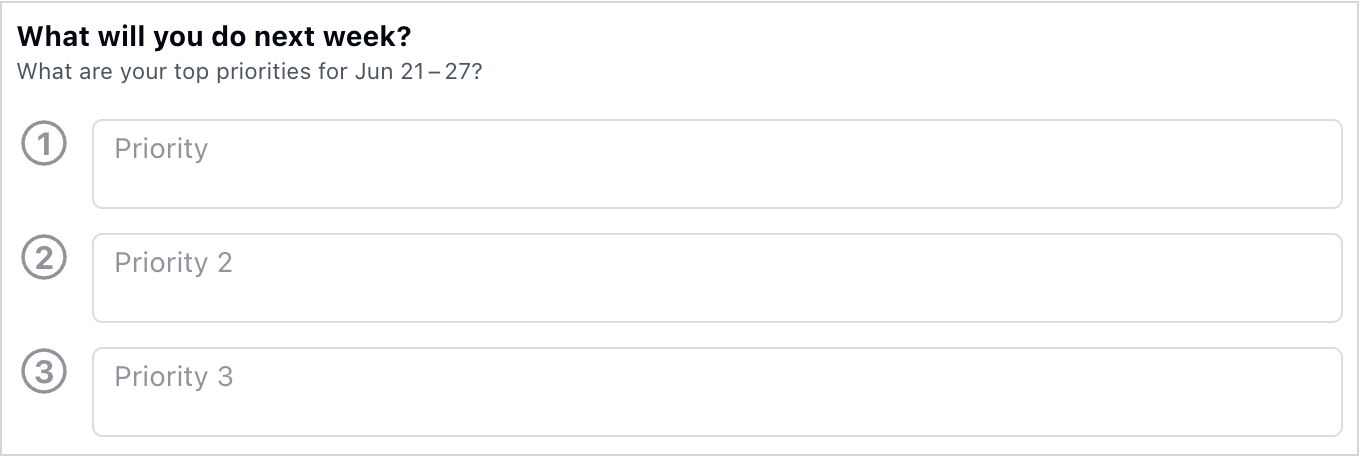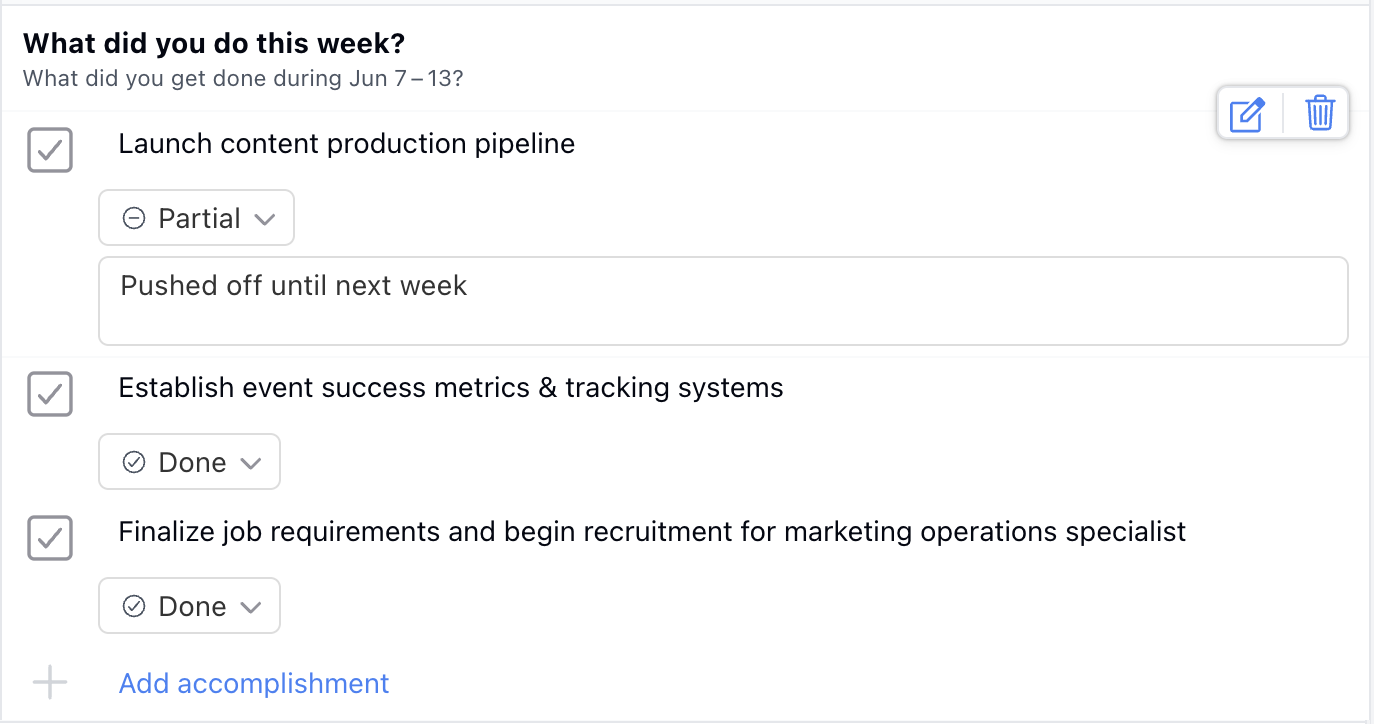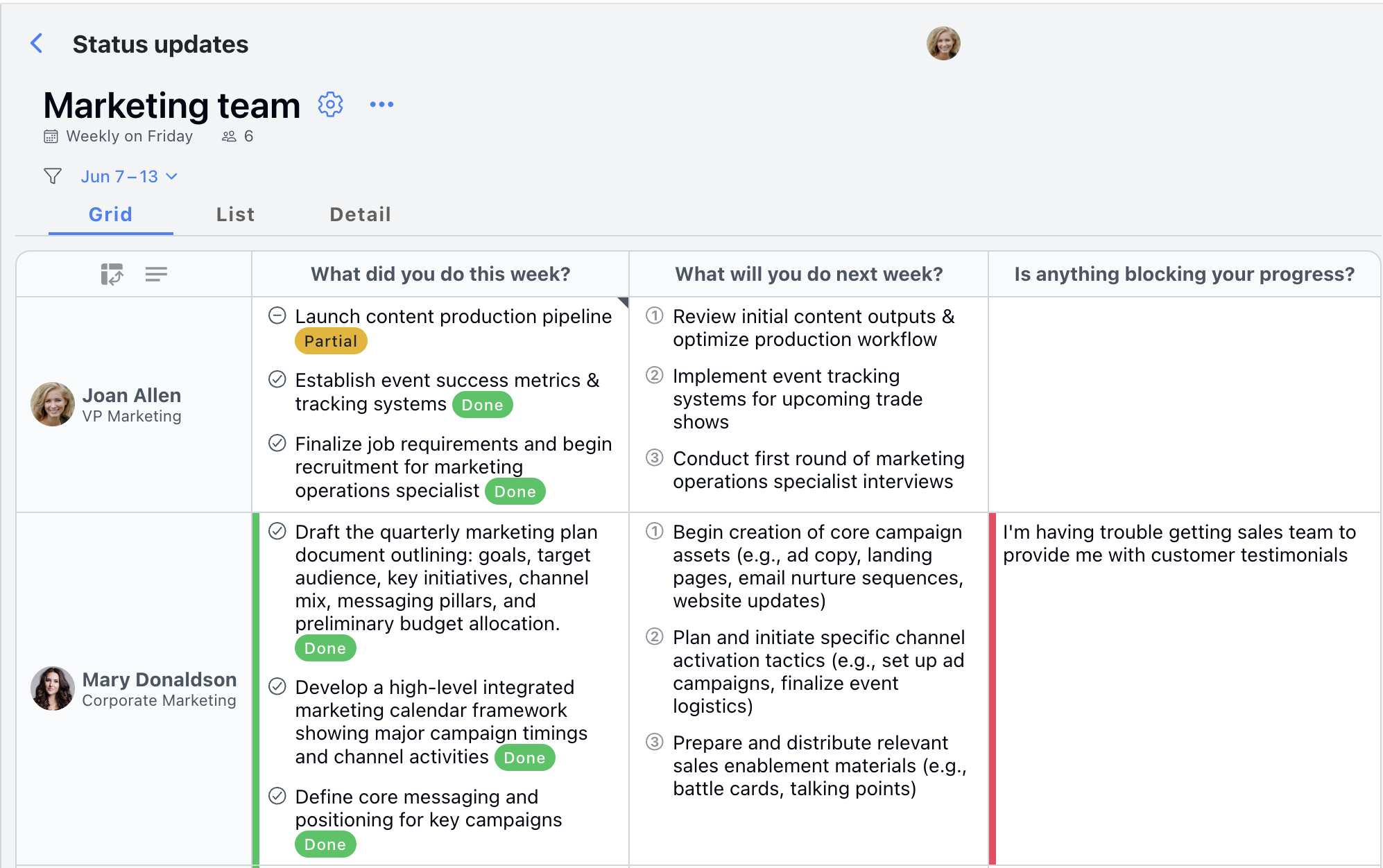Built-in Team Accountability - No More Nagging
The Problem with Traditional Accountability
Every manager knows this frustration: team members make commitments in meetings, then quietly let them slip without follow-up. The result? Missed deadlines, disappointed stakeholders, and that awkward conversation where you have to ask, "So... what happened to that thing you said you'd do?"
The traditional approach creates a lose-lose situation:
- Managers become micromanagers, constantly checking in on commitments
- Team members feel untrusted and nagged, leading to resentment
- Projects suffer from unclear expectations and inconsistent follow-through
How Kutano Changes the Game
Kutano creates accountability that feels natural, not forced. Instead of managers having to chase people down, the system itself creates gentle, consistent pressure to follow through—while giving everyone clear visibility into what's actually happening.
The key difference: People commit publicly to their team, not just their boss. This transforms accountability from a top-down management tool into peer-driven motivation that actually works.
The Accountability Cycle: How It Works
Step 1: Friday Planning (3 minutes)
At the end of each week, team members list their top 3-5 priorities for the upcoming week—things they genuinely believe they can accomplish. This isn't about creating an overwhelming to-do list; it's about making thoughtful commitments.

Why this works: People are more likely to follow through on commitments they make themselves, rather than tasks assigned by others.
Step 2: Friday Follow-up (2 minutes)
At week's end, Kutano automatically shows each person their previous week's commitments. They simply update the status and add any context about what happened.

Why this works: The connection between intention and result is crystal clear—no one can forget what they said they'd do.
Step 3: Team Visibility (Ongoing)
Everyone can see the collective results, creating natural accountability without awkward confrontations.

Why this works: Public commitment creates social pressure that's more effective than manager oversight.
Why Team-Based Accountability Works Better
Traditional accountability feels like surveillance—manager checking up on employee. Kutano creates something different: peer accountability where team members naturally motivate each other.
The Psychology Behind It
When you commit to your team (not just your boss):
- You feel genuine ownership of your commitments
- Letting teammates down feels worse than disappointing a manager
- Success becomes shared celebration, not just personal achievement
- The pressure is gentle but consistent—no one wants to be "that person" who consistently under-delivers
Real Team Benefits
For Managers:
- Stop playing the role of "task police"
- Gain clear visibility into workload patterns
- Focus conversations on support, not checking up
- Build trust through transparency
For Team Members:
- Feel respected and trusted to manage their own commitments
- See how their work connects to teammates' success
- Get recognition when they consistently deliver
- Learn to set realistic expectations through experience
For the Team Overall:
- Shared understanding of everyone's priorities
- Natural coordination without excessive meetings
- Cultural shift toward reliable follow-through
- Increased trust and psychological safety
Common Patterns Kutano Reveals (And How to Fix Them)
The Over-Promiser: "I'll Get Everything Done!"
The pattern: Some team members consistently commit to 4 big tasks but complete only 2, creating ripple effects across dependent work.
What Kutano shows you:
- Clear completion rates over time (e.g., "Sarah completes 60% of weekly commitments")
- Impact on team dependencies when promises aren't kept
- Patterns of which types of tasks get dropped most often
How this helps:
- Self-awareness: People see their own patterns without judgment
- Better planning: Natural learning toward more realistic goal-setting
- Team understanding: Colleagues recognize over-commitment vs. poor performance
- Manager support: "How can we help you be more realistic?" instead of "Why didn't you finish?"
Real example: "I noticed I've been committing to 4 things but finishing 2. This week I'm committing to 3 things I'm confident about, plus 1 stretch goal clearly marked as 'if time allows.'"
The Under-Promiser: "I'm Just Making Progress"
The pattern: Some team members set very safe, vague goals like "work on project X" without specific deliverables.
What Kutano shows you:
- Vague commitments that are hard to measure
- Limited visible progress over multiple weeks
- Disconnect between effort and tangible results
How this helps:
- Gentle pressure for specificity: Public commitments naturally become more concrete
- Recognition opportunities: Celebrating specific achievements builds confidence
- Skill development: Learning to break big projects into demonstrable milestones
- Career growth: Developing ability to articulate value and impact
Real example: Instead of "work on website redesign," commitments become "complete user research interviews with 5 customers" and "create wireframes for checkout flow."
The Empowerment Factor: Ownership vs. Oversight
The most powerful aspect of Kutano's accountability system is that it shifts the dynamic from management oversight to personal ownership.
Traditional Accountability Problems
Manager-driven approach:
- "Did you finish the report?" (feels like interrogation)
- Employees feel micromanaged and untrusted
- Creates adversarial relationship around task completion
- Manager spends time checking up instead of supporting
Kutano's Empowerment Approach
Self-directed commitment:
- People choose their own priorities each week
- Commitments feel achievable because they set them
- Public visibility creates natural motivation
- Manager can focus on removing obstacles, not tracking tasks
The Trust Factor
What happens over time:
- Team members develop better self-awareness about their capacity
- Managers learn to trust their team's judgment and planning
- Conversations shift from "status check" to "how can I help?"
- Overall team performance improves through voluntary commitment rather than forced compliance
The bottom line: When people feel trusted to manage their own commitments, they rise to meet that trust. Kutano creates the structure that makes this possible while maintaining the visibility that managers need.
Try Kutano free and experience the power of built-in accountability that actually works.